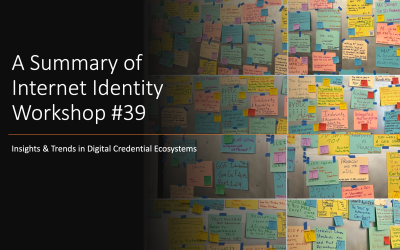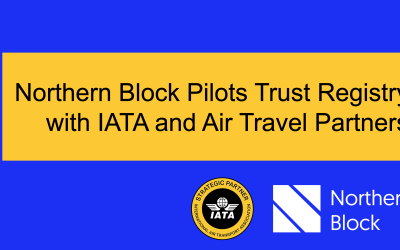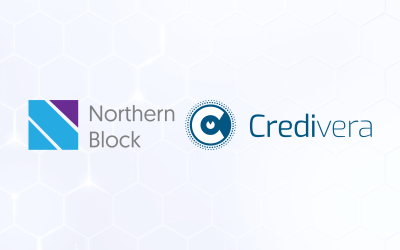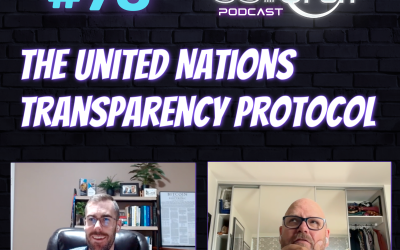In the world of self-sovereign identity (SSI), there are various opinions about using the word sovereignty for describing the ambitions that we are trying to achieve through our principles, values, standards, technologies and governance frameworks. Some people refrain from using it as it causes confusion in discussions amongst various stakeholders. There were similarities in the crypto space in 2018, where the terms crypto and even blockchain became ones to avoid in conversations, and people started referring to them as ledger technologies. But the purpose of this series isn’t to focus on the right naming convention, but instead to focus on what is needed to achieve digital trust, which is a means to achieving more sovereignty for all.
The need for sovereignty is not only for people, but also for Nation States. Let’s define both of these:
- National sovereignty: “The formation and protection of sustainable freedom, equality and justice in society depends totally on the exact sense of establishment of national sovereignty. Therefore, the basis of freedom, equality and justice is national sovereignty.”1
- Personal sovereignty: “The intrinsic authority and power of an individual to determine their own direction and destiny. It means not being controlled or manipulated by any person, group, or institution. It means having agency and autonomy over your life; being able to make your own decisions”2
With the basis of freedom, equality and justice being tied to national sovereignty, ensuring democratic nation states can not only maintain, but increase their sovereignty should result in positive downstream implications for the sovereignty of their citizens.
As world economies continue to undergo fundamental shifts, with a rising share of economic growth and prosperity being driven by intangible assets (i.e. investments and assets that do not have a concrete physical existence) (e.g., data, digital services, brand equity, etc.), governments must ensure they exercise leadership within the digital realm. As more of us spend increasing time in digital environments rather than physical, governments must enable the same level of trust in the digital world that they do in the physical world, so that citizens have agency and autonomy over their growing digital lives.
So the million dollar question is:
How do we create an unbiased open playing field driven by infrastructure allowing all to play with sovereignty?
Technology companies seem to have sovereignty over their digital ecosystems. They architect the rules, algorithms, data, policies, etc. In contrast to the physical ecosystems where governments are generally the architects.
Let’s look at an example.
On January 6th, 2021, when a mob attacked the United States Capitol in Washington – the response went to the tech companies, not to governments. Companies such as Twitter were empowered to de-platform the president of the US, and certain platforms like Parler were banned by their infrastructure provider.3 However you feel about Twitter, they managed to exercise sovereignty (e.g., once again recently by reinstating previously banned accounts). And whatever opinion you have about these technology companies’ policies, no one has voted for their rules – they continue to exercise sovereignty over important societal matters.
With regard to exerting sovereignty in the digital space, generally speaking, the private sector has moved ahead of governments. Hearings of Facebook at Congress in 2018 were a good example of reactionary measures. When a private sector company generated enough complaints from citizens, the US Congress then prioritized looking into what was happening.
At the fast pace at which new technology moves, if governments aren’t a party to what is being built, how can they keep up with it? In the physical world, if a mining operation is built on some land, to some extent the land is overseen and governed by a respective government agency. 4 The Internet on the other hand doesn’t have the same standard of government oversight. So how will they know what is being built and how these things are impacting the sovereignty of their citizens.
Increasing national sovereignty in the digital world remains a pressing topic throughout world governments. And the launch of national digital identity programs by governments has shown great initiative to solve some of these issues.
We will shift the focus in the next chapter to Digital Identity. If digital trust is a means to sovereignty, then let’s look at how citizen-controlled digital identity can be a means to attaining digital trust.

Digital Identity → Digital Trust → Digital Sovereignty
In Chapter 2, we will look at how most of the Digital ID solutions which exist in the market today are either driven by private sector or closed government ecosystem solutions. The digital world is broader than the physical borders of a nation. And citizens every day operate digitally outside of the physical boundaries. By not having open ecosystems, it makes it difficult for governments to fully assess the impact these systems have on their citizens.»
⬅️ Introduction Chapter 2 – Digital Identity ➡️
——
Footnotes
- https://www.ktb.gov.tr/EN-104179/national-sovereignty-national-government.html#:~:text=The%20formation%20and%20protection%20of,in%20our%20state%20is%20limitless.
- https://www.linkedin.com/pulse/personal-sovereignty-barbara-fagan-smith/
- https://time.com/5929888/amazon-parler-aws/
- In the physical world, does anything that can have a significant impact on citizens happen without government involvement/oversight?









